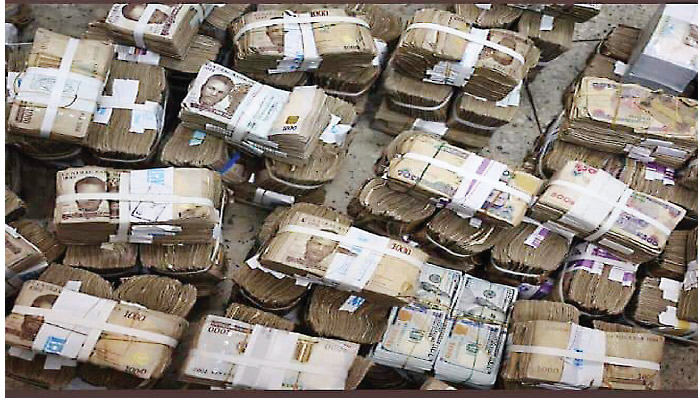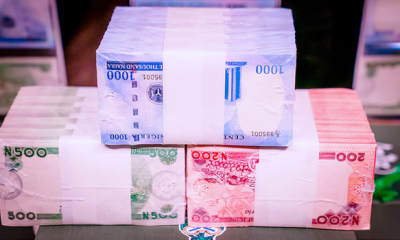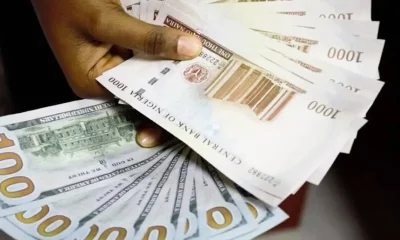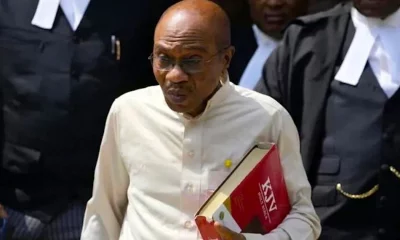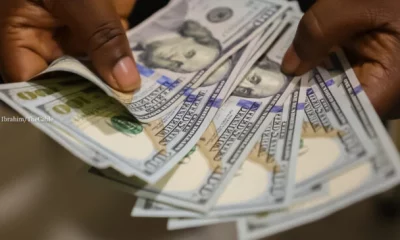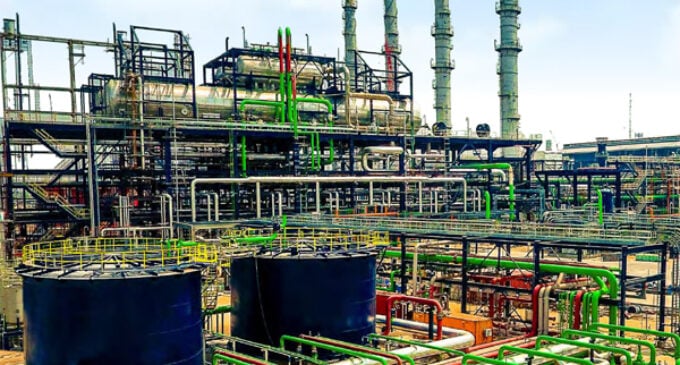Less than one week after the Central Bank of Nigeria, CBN, announced the redesign of the N1,000, N500 and N200 notes, with a directive that the current notes be remitted to the commercial banks, wealthy individuals and organisations with huge cash stashed away have begun depositing them, according to reports.
Sources in many commercial banks said that even though there has yet to be any rush by customers, there was a gradual increase in the volume of cash and amounts being remitted by customers.
It will be recalled that the Governor of the CBN, Mr Godwin Emefiele, while announcing the issuance of the new naira notes on October 26, said bank customers should start paying their current notes to enable them to withdraw the new bank notes once circulation begins on December 15, 2022.
Emefiele said the apex bank had become concerned over some daunting challenges in the management of the existing banknotes in circulation, especially those outside the banking system, noting that such portend some consequences for the integrity of the CBN and the country.
Among the challenges that informed the decision, he lamented the “significant hoarding” of the banknotes in which case N2.73tn out of the N3.23tn currency in circulation as of September 2022 was outside the vaults of the commercial banks across the country. He also cited the worsening shortage of clean and fit banknotes; increasing ease and risk of counterfeiting evidenced by several security reports and compliance with global standard to circulate new legal tender every five to eight years.
He noted further that the naira redesign would help to rein in the currency outside the banking system and make its monetary policies more efficacious, deepen its cashless economy drive and minimise incidents of terrorism and kidnapping as the access to large sums used for ransom payment.
He noted, “On the basis of these trends, problems, and facts set out above, and in line with provisions of Sections 2(b), section 18(a) , and section 19, Subsections a and b of the CBN Act 2007, the Management of the CBN has sought and obtained the approval of President Muhammadu Buhari to redesign, produce, release and circulate new series of banknotes at N200, N500, and N1,000 levels.
“In line with this approval, we have finalised arrangements for the new currency to begin circulation from December 15, 2022 after its launch by President Muhammadu Buhari. The new and existing currencies shall remain legal tender and circulate together until January 31, 2023 when the existing currencies shall cease to be legal tender.”
Huge cash deposits
Meanwhile, indications have emerged that individuals have begun depositing huge cash sums stashed away with the commercial banks.
A top banker with one of the first generation banks, who spoke on condition of anonymity, said there was a gradual increase in the sums of money being deposited by some customers. “We have seen an increase in the amount being brought to some of our branches by some customers,” the source said.
The source added, “The amounts vary, but we have seen people bring between N5m and N20m cash. It’s only rich customers that can have huge sums stashed away. The poor live on daily income and can hardly have enough to save.”
He said it was easy to identify the money stashed away for a long time because of the smell, the dates on them and other elements she refused to disclose. “There are ways to identify them but I don’t want to go into that because the focus of the CBN policy is to rein in the volume of cash in circulation. The regulators would deal with the rest.”
Another source confirmed that there was already a rise in the amount of cash being deposited by some customers.
She said, “The normal deposit by average income earners and businesses continues, but some customers have been coming with huge sums to deposit. We have seen some persons bring N2m cash and there have been higher and lesser amounts respectively from some other branches.”
Meanwhile, a senior staff at the headquarters of another first generation bank noted that feedback from some of their branches showed that some customers brought in billions, some in millions and some in hundreds of thousands.
“We have to protect the customers, even if you suspect the possible source of such funds. The information from some of our branches indicate that in the last few days, specifically since October 26 when the CBN made the announcement, there have been individuals who brought in billions while some came to deposit millions.
“From what the CBN governor said in his briefing, he said about 85 per cent of the cash in circulation was outside the bank vaults and that alone is over N2tn, which shows that we might even see more billions being brought to the banks for remittance in the coming days.”
“But I can tell you that across all the financial institutions, there has been a surge in deposits. It’s not natural; the naira redesign and the fact that the Economic and Financial Crimes Commission has been going after some people has made it so. How come we have over N2tn in people’s hands?
“I have had interactions with some of my colleagues in other banks and they confirmed that it’s the same in their banks. The deposit has been in billions. It might come as a surprise to many, but it’s the reality. I came across a report that some states are considering paying salaries in cash, because they have stashed away huge cash and they need to expend it.”

 News3 years ago
News3 years ago
 Entertainment2 years ago
Entertainment2 years ago
 News3 years ago
News3 years ago
 Privacy3 years ago
Privacy3 years ago
 Sports2 years ago
Sports2 years ago
 Entertainment2 years ago
Entertainment2 years ago
 News3 years ago
News3 years ago
 Opinion3 years ago
Opinion3 years ago
